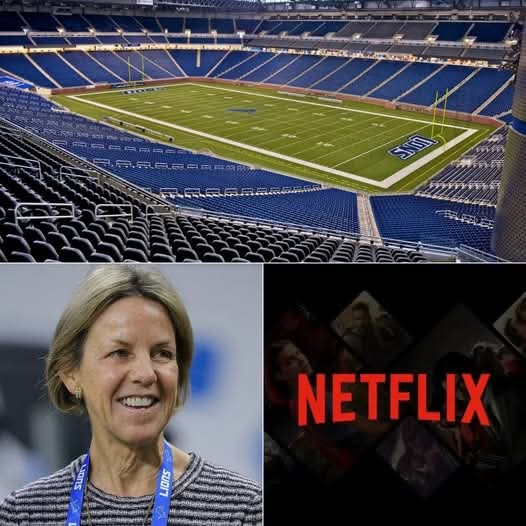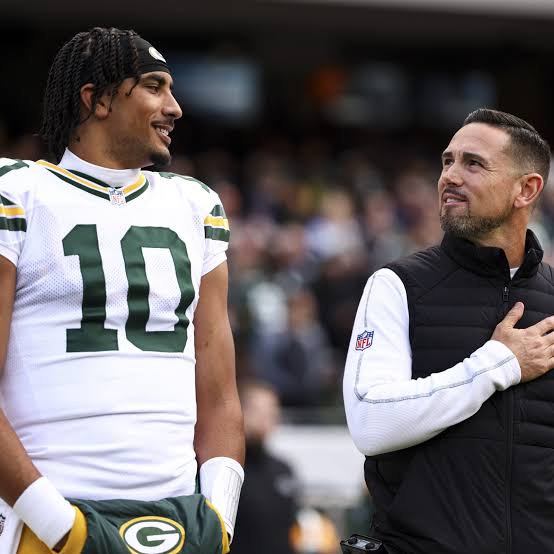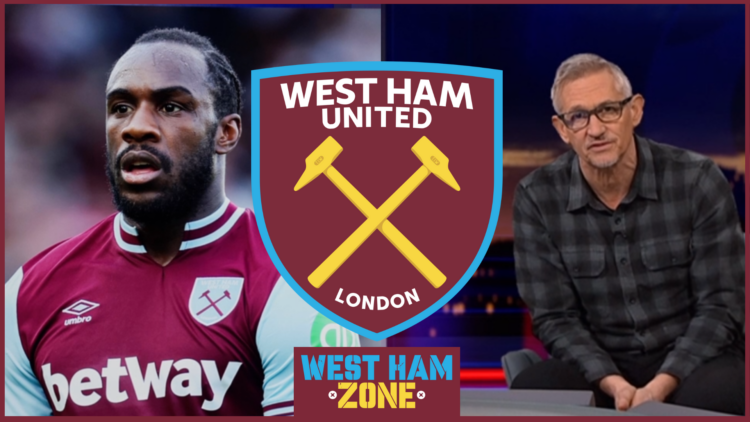The climax of English domestic cup football arrives this Saturday as Crystal Palace and Manchester City prepare to battle for the prestigious FA Cup trophy at Wembley Stadium. In a fixture scheduling quirk, this season’s FA Cup final takes place before the Premier League campaign concludes, adding an interesting dynamic as both teams balance cup glory with their remaining league commitments.
This matchup presents a fascinating contrast of footballing philosophies: Oliver Glasner’s well-organized Crystal Palace, who have been impressive defensively throughout their cup run, against Pep Guardiola’s Manchester City, a side regaining momentum after a challenging period earlier in the season. For Palace, this represents a rare opportunity to secure European football through cup success, while City aims to add yet another trophy to their considerable collection under Guardiola’s tenure.
The journey to Wembley has been markedly different for both sides. Palace have been defensively resolute, conceding just once en route to the final, while City have navigated a more precarious path with several narrow victories. With history, tactical intrigue, and notable individual performances all part of the narrative, Saturday’s showpiece promises to be a captivating conclusion to this season’s FA Cup competition.
Crystal Palace’s path to the FA Cup final has been characterized by defensive solidity and clinical attacking efficiency. The Eagles have conceded just a single goal throughout their entire cup campaign, demonstrating the tactical discipline that Glasner has instilled in his side since taking charge.
Their FA Cup journey began with a comfortable 2-0 victory over League Two side Stockport County in the third round. The Eagles controlled proceedings from start to finish, with Jean-Philippe Mateta opening his FA Cup account for the season with a well-taken brace. The fourth round saw Palace travel to face League One outfit Doncaster Rovers, where they showcased their superiority in a professional 3-0 win.
The fifth round presented Palace with their first real test against Championship side Millwall in a fiery London derby. In a match filled with intensity, Palace conceded their only goal of the tournament but still emerged as 3-1 winners, with Eberechi Eze delivering a standout performance.
The quarter-finals pitted Palace against Premier League rivals Fulham at Craven Cottage. In what was anticipated to be a close affair, Palace produced one of their most complete performances of the season, securing a 2-0 victory with goals from Ismaïla Sarr and Mateta. The semi-final against Aston Villa at Wembley was expected to be Palace’s toughest challenge yet, but Glasner’s tactical masterclass resulted in a comprehensive 3-0 win, with Eze, Mateta, and Sarr all finding the net to book their place in the final.
Manchester City’s Campaign
Manchester City’s journey to Wembley has been less straightforward than their final opponents. Their campaign began with a resounding 5-0 victory over League Two side Salford City in the third round, with Erling Haaland notching a hat-trick and Kevin De Bruyne orchestrating proceedings masterfully.
The fourth round saw City drawn against Leyton Orient, where they struggled to break down a resilient defensive setup before eventually securing a narrow 2-1 win thanks to a late strike from Ilkay Gundogan. Their fifth-round fixture against Bournemouth proved equally challenging, with the Cherries pushing Guardiola’s men all the way before City emerged as 1-0 winners courtesy of a Jeremy Doku goal.
The quarter-finals paired City with Nottingham Forest at the Etihad Stadium. In a tense affair, City needed a moment of brilliance from Kevin De Bruyne to secure a 1-0 victory and passage to the semi-finals. Their Wembley semi-final against Newcastle United was a cagey affair, but City’s quality eventually told as they secured a 2-1 win with goals from Haaland and Omar Marmoush to set up Saturday’s final against Crystal Palace.
Oliver Glasner has received a significant boost ahead of Saturday’s final with the news that influential midfielder Adam Wharton has recovered from an ankle injury and will be available for selection. The Crystal Palace manager will only be without two first-team players for this crucial fixture: Chadi Riad and Cheick Doucoure, who continue their rehabilitation from long-term knee injuries.
Dean Henderson is certain to start between the posts, protected by a back three of Chris Richards, Maxence Lacroix, and Marc Guehi. This defensive unit has been instrumental in Palace’s impressive FA Cup run, conceding just once throughout the entire competition. The versatile Daniel Munoz and Tyrick Mitchell will operate as wing-backs, tasked with providing width in attacking phases while reinforcing the defensive structure when out of possession.
In midfield, the return of Adam Wharton is crucial for Palace’s ball progression and defensive screening. He is likely to partner with the experienced Will Hughes, whose energy and tactical intelligence will be vital in disrupting City’s rhythmic possession play. The creative burden will fall primarily on Eberechi Eze, who has been directly involved in four goals in his last four FA Cup appearances and represents Palace’s most potent attacking threat.
Ismaila Sarr’s pace and direct running from wide areas will be an important outlet, particularly in transition moments, while Jean-Philippe Mateta will lead the line, looking to add to his impressive goal tally in this season’s competition. Mateta’s physical presence and improved finishing have made him a formidable striker under Glasner’s guidance.
Glasner’s tactical approach is likely to be disciplined and pragmatic. Palace will almost certainly concede possession for long periods, focusing instead on maintaining a compact defensive shape and looking to spring forward quickly when they win the ball. Their success will largely depend on their ability to withstand City’s sustained pressure and capitalize on counter-attacking opportunities.
Probable Lineup (3-4-2-1): Henderson; Richards, Lacroix, Guehi; Munoz, Hughes, Wharton, Mitchell; Eze, Sarr; Mateta
Pep Guardiola enters this FA Cup final with his squad in relatively good shape, missing only four first-team players. The most significant absentee remains Rodri, whose influence in midfield has been sorely missed during his recovery from a serious knee injury. Nathan Ake (foot), John Stones (knee), and Oscar Bobb (thigh) will also be unavailable for selection on Saturday.
Ederson Moraes will start in goal, with Guardiola likely to opt for a back four comprising Matheus Nunes at right-back, Ruben Dias and Josko Gvardiol in central defense, and the talented youngster Nico O’Reilly at left-back. O’Reilly has been a revelation in City’s FA Cup campaign, contributing to five goals with three strikes and two assists.
In midfield, the absence of Rodri means that Mateo Kovacic and Bernardo Silva will likely form the double pivot, with both players offering technical security in possession while providing necessary defensive coverage. Kevin De Bruyne will operate in his favored number ten role, where his vision and passing range can unpick even the most organized defensive setups.
The wide attacking positions should be filled by Jeremy Doku and Omar Marmoush, with both players offering contrasting but complementary qualities. Doku’s explosive pace and dribbling ability make him a constant threat in one-on-one situations, while Marmoush has proven to be an intelligent and clinical performer since his arrival at the club.
Leading the line will be the formidable Erling Haaland, although the Norwegian striker will be keen to break his Wembley duck, having failed to score in any of his five appearances at the national stadium for Manchester City. This surprising statistic will surely provide added motivation for one of world football’s most prolific goalscorers.
Guardiola’s tactical approach will likely follow familiar principles: dominating possession, patiently probing for openings, and using positional rotations to disrupt Palace’s defensive organization. The Spaniard may also instruct his team to press aggressively when out of possession, seeking to win the ball high up the pitch and prevent Palace from establishing counter-attacking momentum.
Probable Lineup (4-2-3-1): Ederson; Nunes, Dias, Gvardiol, O’Reilly; Kovacic, Bernardo Silva; Doku, De Bruyne, Marmoush; Haaland
Key Historical Context and Statistics
The historical context of this fixture heavily favors Manchester City, who come into the final unbeaten in their last seven meetings with Crystal Palace across all competitions. Since Palace’s surprising 2-0 Premier League victory at the Etihad in October 2021, City have won four and drawn three against the Eagles, establishing clear dominance in recent encounters.
City’s FA Cup record against Palace is particularly impressive, having won their last three cup meetings by an aggregate score of 18-4. The most recent FA Cup clash between these sides came in the 2016/17 season’s fourth round, with City securing a comfortable 3-0 victory at Selhurst Park.
Recent meetings between these teams have typically produced goals at both ends. The four most recent clashes have seen both teams score at least twice, a rare occurrence in modern football. The last time two top-flight clubs netted 2+ times in five consecutive meetings was between Derby County and Newcastle United from 1975 to 1977, highlighting the attacking potency these sides have displayed when facing each other.
Manchester City’s FA Cup form in recent years has been remarkably decisive – none of their last 44 games in the competition have ended in a draw, with the Citizens winning 38 and losing just six. Notably, five of those six defeats have come at Wembley Stadium, which might provide a glimmer of hope for Palace supporters.
For Pep Guardiola, this final represents an opportunity to further cement his legacy in English football. Having already won the FA Cup twice (2019, 2023) and the League Cup four times (2018, 2019, 2020, 2021), victory on Saturday would see him become only the second manager after Sir Alex Ferguson (5x FA Cup, 4x League Cup) to win both major English domestic cup competitions at least three times.
Key Tactical Battles
Palace’s Defensive Resilience vs City’s Attacking Fluidity
The most fundamental tactical narrative of this final will be Crystal Palace’s defensive organization against Manchester City’s fluid attacking patterns. Palace have conceded just once en route to Wembley, demonstrating remarkable defensive discipline under Glasner’s guidance. Their three-man defensive unit of Richards, Lacroix, and Guehi has developed an excellent understanding, while the wing-backs provide additional width and security.
However, City’s attacking approach presents unique challenges. Guardiola’s side doesn’t rely on a fixed tactical framework in the final third; instead, they constantly rotate positions and create overloads in different areas of the pitch. The combination of De Bruyne’s passing range, Doku’s directness, Silva’s intelligent movement, and Haaland’s penalty-box presence will test Palace’s defensive structure to its limits.
For Palace to succeed, their defensive line must maintain perfect synchronization while the midfield pairing of Hughes and Wharton must effectively screen passing lanes to City’s creative players. Any momentary lapse in concentration could prove fatal against opponents of City’s caliber.
Midfield Control: Wharton & Hughes vs Kovacic & Silva
The midfield battle will be crucial in determining which side controls the tempo of the match. In Adam Wharton and Will Hughes, Palace possess a balanced midfield duo capable of both defensive diligence and progressive passing. Wharton’s return from injury is particularly significant; his ability to break up play and distribute intelligently provides Palace with the midfield security they’ll need against City’s relentless possession.
City’s midfield pairing of Mateo Kovacic and Bernardo Silva offers technical excellence and tactical intelligence. While neither player is a natural defensive midfielder in the mold of the absent Rodri, both are adept at recycling possession and maintaining City’s positional structure. Silva’s ability to drift between midfield and attack also creates numerical advantages in different phases of play.
Palace will almost certainly concede possession for long periods, so their midfield’s capacity to remain compact, intercept passes, and transition quickly when winning the ball will be vital to their chances of success.
Wing Play: Mitchell & Munoz vs Doku & Marmoush
The wide areas present another fascinating tactical battleground. Palace’s wing-backs, Tyrick Mitchell and Daniel Munoz, must balance their defensive responsibilities with providing attacking width. Both players possess the energy and athleticism to fulfill this dual role, but maintaining this balance against City’s wide attackers will be challenging.
Jeremy Doku represents a particularly difficult matchup for Mitchell. The Belgian winger’s explosive acceleration and dribbling ability make him one of the Premier League’s most dangerous one-on-one attackers. Meanwhile, Marmoush’s intelligent movement and finishing ability on the opposite flank will require equal attention from Munoz.
Palace’s ability to control these wide areas will significantly impact their defensive stability and cou



